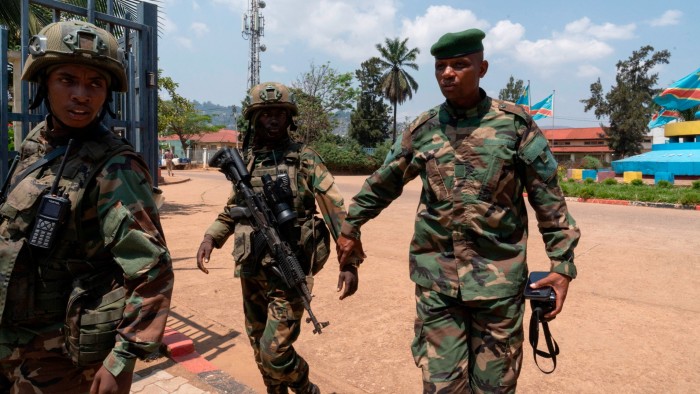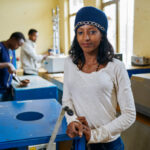Unlock the White House Watch newsletter for free
Representatives of Rwanda and the Democratic Republic of Congo have reached a significant milestone in their efforts to bring an end to decades of conflict and put an end to a rebellion in eastern Congo. The breakthrough came after several days of intense negotiations in Washington, with the participation of Qatar, who has been facilitating parallel talks between the Kinshasa government and the M23 rebels, who are backed by Rwanda.
The US State Department has confirmed that technical teams have finalized a draft peace agreement, which is set to be officially signed on June 27 in Washington. There are also hopes for a summit between Presidents Paul Kagame of Rwanda and Felix Tshisekedi of DR Congo to further solidify the peace deal.
The negotiations were initiated by President Donald Trump’s administration, following a proposal from DR Congo’s president to attract US investment in the country’s abundant mineral resources in exchange for assistance in quelling the Rwandan-backed rebellion. If successful, Trump is likely to tout this as a victory for his diplomatic approach.
The M23 rebels have seized control of key mineral-rich areas in eastern Congo, including gold and tin mines, as well as major cities like Goma and Bukavu. The agreement includes provisions for the withdrawal of Rwandan troops from rebel-held territories and the disarmament and integration of non-state armed groups.
The state department has outlined a comprehensive framework that addresses various aspects of the conflict, such as the return of refugees and internally displaced persons, access for humanitarian agencies, and regional economic integration. This deal could potentially open up opportunities for substantial investments in mining, infrastructure, and metal processing plants, with the support of the International Development Finance Corporation.
DR Congo is also in talks with the Trump administration for a separate agreement focused on critical minerals, such as copper, cobalt, lithium, and coltan. This strategic partnership aims to not only promote peace and stability in the region but also to counter China’s influence in Congo’s lucrative mining sector.
The successful implementation of these agreements could pave the way for a new era of economic development and cooperation in the region, with the potential for billions of dollars in investments and the establishment of stronger trade relationships with neighboring countries. The peace deal represents a crucial step towards ending the longstanding conflicts that have plagued the region since the aftermath of the Rwandan genocide in 1994.








